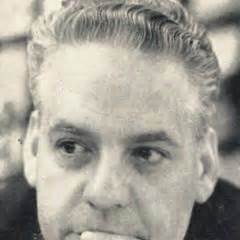A Quote by James Allen
Man is buffeted by circumstances so long as he believes himself to be the creature of outside conditions, but when he realizes that he is a creative power, and that he may command the hidden soil and seeds of his being out of which circumstances grow, he then becomes the rightful master of himself.
Related Quotes
Can anything be imagined so ridiculous that this miserable and wretched creature, who is not so much as master of himself, but subject to the injuries of all things, should call himself master and emperor of the world, of which he has not power to know the least part, much less to command the whole?
A man only begins to be a man when he ceases to whine and revile, and commences to search for the hidden justice which regulates his life. And he adapts his mind to that regulating factor, he ceases to accuse others as the cause of his condition, and builds himself up in strong and noble thoughts; ceases to kick against circumstances, but begins to use them as aids to his more rapid progress, and as a means of the hidden powers and possibilities within himself.
Take a young man from Gaza living in the most horrendous conditions - most of it imposed by Israel - who straps dynamite around himself and then throws himself into a crowd of Israelis. I've never condoned or agreed with it, but at least it is understandable as the desperate wish of a human being who feels himself being crowded out of life and all of his surroundings, who sees his fellow citizens, other Palestinians, his parents, sisters, and brothers, suffering, being injured, or being killed. He wants to do something, to strike back.
Man stands alone in the universe, a unique product of a long, unconscious, impersonal, material process with unique understanding and potentialities. These he owes to no one but himself, and it is to himself that he is responsible. He is not the creature of uncontrollable and undeterminable forces, but is his own master. He can and must decide and manage his own destiny.
In the absence of government each man learns to think, to act for himself, without counting on the support of an outside force which, however vigilant one supposes it to be, can never answer all social needs. Man, thus accustomed to seek his well-being only through his own efforts, raises himself in his own opinion as he does in the opinion of others; his soul becomes larger and stronger at the same time.
There is probably no one, however rigid his virtue, who is not liable to find himself, by the complexity of circumstances, living at close quarters with the very vice which he himself has been most outspoken in condemning -- without altogether recognizing it beneath the disguise of ambiguous behavior which it assumes in his presence.
As long as anyone believes that his ideal and purpose is outside him, that it is above the clouds, in the past or in the future, he will go outside himself and seek fulfillment where it cannot be found. He will look for solutions and answers at every point except where they can be found- in himself.
An artist is he who has his center within himself. He who lacks this must choose a particular leader and mediator outside of himself, not forever, however, but only at first. For man cannot exist without a living center, and if he does not have it within himself, he may seek it only in a human being. Only a human being and his center can stimulate and awaken that of another.
































